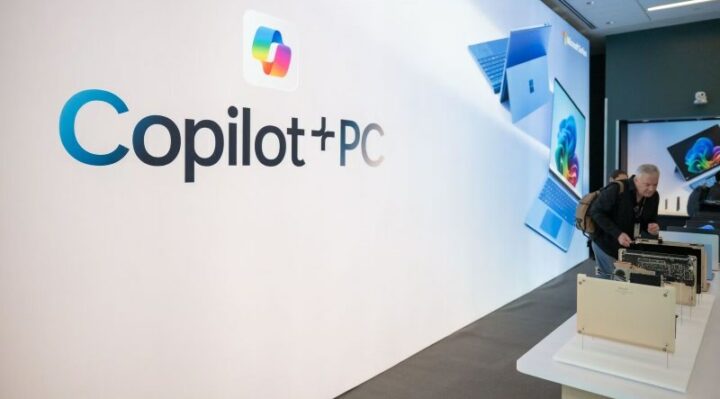
The Copilot+ PC, a limited-time partnership between Qualcomm and Microsoft, has moved into the pre-order stage, which is a big step toward introducing AI-powered PCs to the general market. The choice by Microsoft to collaborate with Qualcomm on the initial rollout has resulted in this endeavor, which is the first significant outcome.
Representatives from Qualcomm voiced optimism regarding pre-order levels during COMPUTEX 2024. As previously reported by other sources in the semiconductor industry, Microsoft is happy with the Copilot+ PC’s pre-order performance, exceeding original projections.
Retaining this momentum depends on early adopters’ input. In order to establish a strong basis for the development of AI PCs, Qualcomm and other IC suppliers anticipate that this trend continues at least until the second half of the year.
There was initial concern regarding Microsoft’s choice to utilize the Snapdragon X series platform exclusively for the Copilot+ PC. It’s difficult to sell Qualcomm’s PC products since the industry has long trusted the x86 architecture for Windows PCs and because of the company’s past poor performance in the PC space.
But Microsoft’s strong push and exclusive alliance, together with enlisting all of the big notebook makers to release devices at the same time, seem to have allayed early worries. Pre-order figures are stronger than anticipated as a result of this technique. It remains to be seen, though, if these figures will translate into sustained success for the Copilot+ PC.
Since the initial models are typically expensive, it is possible that neither Qualcomm, Microsoft, or the notebook makers set extremely high pre-order targets, which would make it simpler to surpass them.
The main issue for the Copilot+ PC, according to industry analysts, is just getting started. It’s a challenging undertaking, but AI features have to be appealing enough to get customers to buy expensive models in a still-recovering economy.
Chipmakers understand that consumers will likely be hesitant as the AI PC age is just getting started. Assembly plants anticipate that the demand increase may not be as strong as predicted, which leads them to take a conservative outlook on the overall volume and replacement cycle of AI PCs. Consumer testing is necessary for products to progressively get stronger and better.
Furthermore, it is possible to regularly update the quick development of AI application algorithms and related functions, with notable advancements or new features appearing every quarter. This could accelerate demand quicker than anticipated by enabling real-time enhancements for Copilot+ PC users.
Taiwan’s IC design companies are keen to cash in on the Copilot+ PC movement. To break into this new market, these companies are taking advantage of their high-end goods and established position in the PC market.
IC design companies said they expect other platforms will incorporate AI elements, beyond the Microsoft-Qualcomm partnership on the Copilot+ PC. Increasing the number of users who may use AI capability could promote wider acceptance and speed up the production of different chips, even in the absence of the Copilot+ PC branding.



